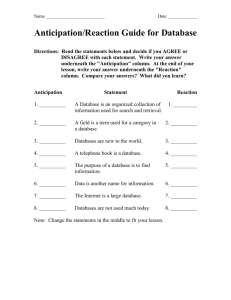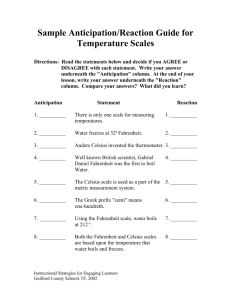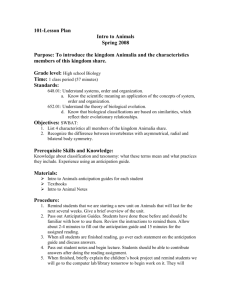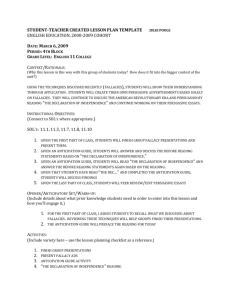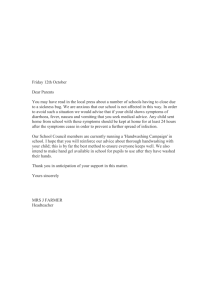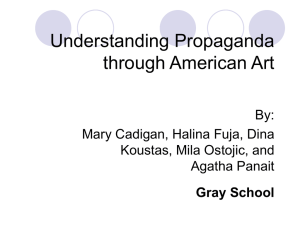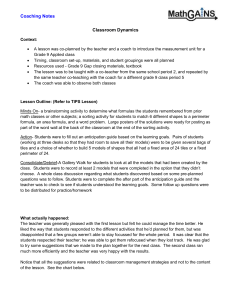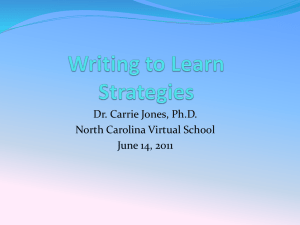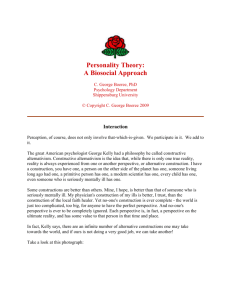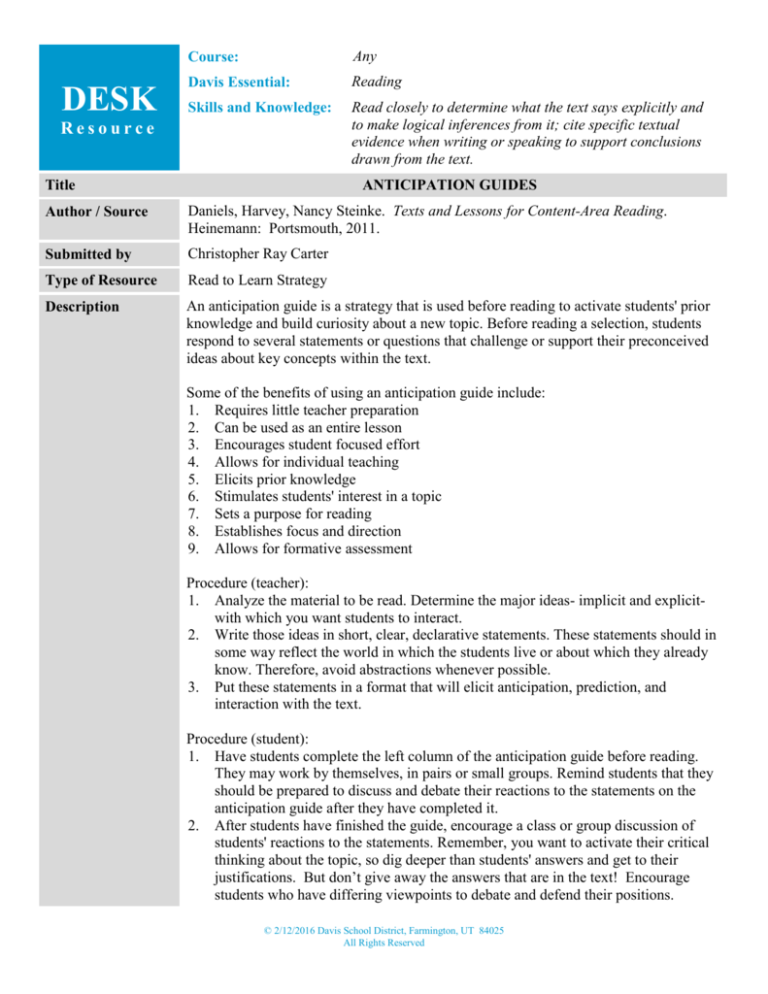
DESK
Course:
Any
Davis Essential:
Reading
Skills and Knowledge:
Read closely to determine what the text says explicitly and
to make logical inferences from it; cite specific textual
evidence when writing or speaking to support conclusions
drawn from the text.
Resource
Title
ANTICIPATION GUIDES
Author / Source
Daniels, Harvey, Nancy Steinke. Texts and Lessons for Content-Area Reading.
Heinemann: Portsmouth, 2011.
Submitted by
Christopher Ray Carter
Type of Resource
Read to Learn Strategy
Description
An anticipation guide is a strategy that is used before reading to activate students' prior
knowledge and build curiosity about a new topic. Before reading a selection, students
respond to several statements or questions that challenge or support their preconceived
ideas about key concepts within the text.
Some of the benefits of using an anticipation guide include:
1. Requires little teacher preparation
2. Can be used as an entire lesson
3. Encourages student focused effort
4. Allows for individual teaching
5. Elicits prior knowledge
6. Stimulates students' interest in a topic
7. Sets a purpose for reading
8. Establishes focus and direction
9. Allows for formative assessment
Procedure (teacher):
1. Analyze the material to be read. Determine the major ideas- implicit and explicitwith which you want students to interact.
2. Write those ideas in short, clear, declarative statements. These statements should in
some way reflect the world in which the students live or about which they already
know. Therefore, avoid abstractions whenever possible.
3. Put these statements in a format that will elicit anticipation, prediction, and
interaction with the text.
Procedure (student):
1. Have students complete the left column of the anticipation guide before reading.
They may work by themselves, in pairs or small groups. Remind students that they
should be prepared to discuss and debate their reactions to the statements on the
anticipation guide after they have completed it.
2. After students have finished the guide, encourage a class or group discussion of
students' reactions to the statements. Remember, you want to activate their critical
thinking about the topic, so dig deeper than students' answers and get to their
justifications. But don’t give away the answers that are in the text! Encourage
students who have differing viewpoints to debate and defend their positions.
© 2/12/2016 Davis School District, Farmington, UT 84025
All Rights Reserved
3.
4.
5.
Have students read the text with their anticipation guide responses fresh in their
minds so they can react to the text as they read. Encourage students to mark or
write down where the text supports their initial reaction to statements, or causes
them to rethink those reactions.
Have students fill out the right hand column of the anticipation guide. Again,
remind students that they should be prepared to discuss and debate their reactions
to the statements on the anticipation guide after they have completed it. This is a
great way to maintain personal accountability.
Have a class and/or group discussion after reading. Ask students if any of them
changed their position on any of the statements. Encourage students to share how
they reacted to the text, given their initial responses captured in the anticipation
guide. Make sure students share examples from the text where their initial
responses were either supported or challenged.
Classroom
Application
Anticipation guides can be used in any content area, and not just for reading. This
strategy can also be applied to:
• Labs
• Introduce new topics/concepts/content
• Lectures
• Mathematical Formulas
• Any number of skill sets
• Athletic requirements and/or rules
• Etc.
Additional Notes
Variations:
• Add a column for students to write down a page number and paragraph from
the text to defend their answer.
• Add space for students to defend their answers.
Example anticipation guide:
Before
Statement
Reading
Security and Privacy can "make or break" an e-commerce
Yes No
business.
After
Reading
Yes No
Defense:
Yes No The right to privacy is an absolute right.
Yes No
Defense:
Yes No Hacking and viruses are considered to be illegal activities.
Yes No
Defense:
Yes No
Both security and privacy address moral and psychological
needs.
Yes No
Defense:
When creating the anticipation guide, write statements that:
• focus on the information in the text that you want your students to focus on or
think about.
© 2/12/2016 Davis School District, Farmington, UT 84025
All Rights Reserved
•
•
•
are chronological in order.
students can react to without having read the text.
information can be identified in the text that supports and/or opposes each
statement.
• challenge students’ beliefs about the subject, yet are plausible.
are general rather than specific. (eg. “What is the 4th word on the 6th paragraph on page
49?”)
© 2/12/2016 Davis School District, Farmington, UT 84025
All Rights Reserved

